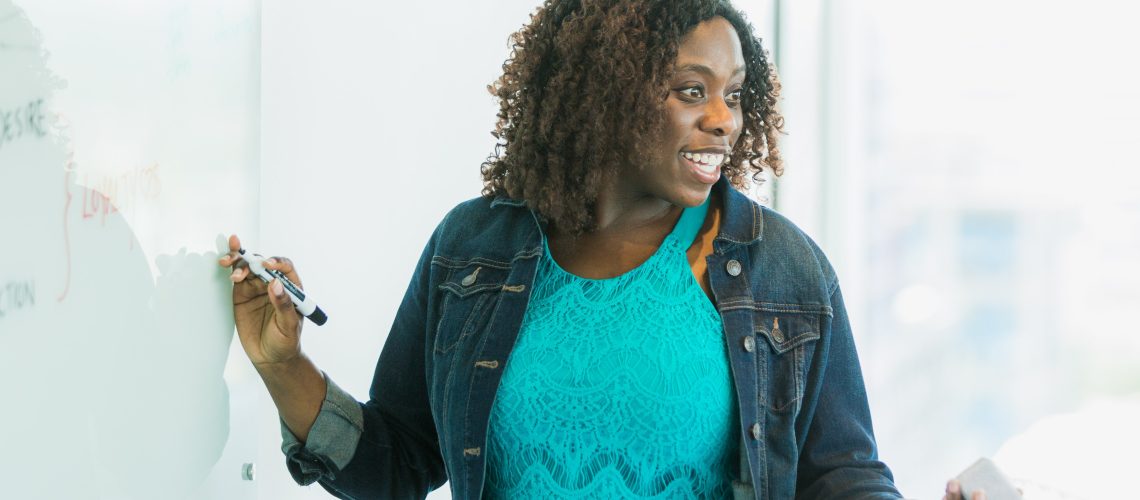Empathy is one of the most important skills we can develop in ourselves and in our children. It helps us build more positive relationships because we have a better understanding of one another and an appreciation for different perspectives.
Brené Brown, author and research professor University of Houston, describes empathy as, “the skill set to bring compassion alive,” and “communicating deep love for people so they know they aren’t alone.”
Nursing scholar, Theresa Wiseman has suggested that the four main attributes of empathy are perspective taking, staying out of judgement, recognizing emotion in others and communicating back the emotion you see. Often, we don’t need easy solutions to challenges, we just need people to stick by our side, and let us know they understand how we’re feeling.
Practicing empathy is not always easy, sometimes it feels like it requires energy you don’t have. Intentionally practicing regular self-care is important so that you feel that you have the strength and energy to empathize with the people we encounter in our daily lives.
The ability to practice empathy is crucial when it comes to conflict management because it is a skill that allows us to understand the perspective of the group or individual we are experiencing conflict with. Perspective-taking and respecting the feelings of others allows us to think about how we can find solutions that satisfy everyone’s needs. Conflict resolution is not a selfish endeavour, and we must take the feelings and thoughts of others into consideration.
One of the best ways to help youth in our communities learn how to empathize is to model and practice empathy in our relationships. Using language that shows them the empathetic thought processes that we use to understand and validate other perspectives is a good place to start.
For some listening tips, look no further than the four main attributes of empathy. You can use each step to become more empathetic as you listen.
- Understand their perspective: Start by asking about how they are doing or feeling.
- Be curious: Be intentional about asking open-ended questions so we don’t impose our ideas on others, but are listening to their ideas instead.
- Identify emotions: Listen and observe how the person responds to our questions and focus on the emotions they express through words and body language.
- Summarize: Confirm that you’ve heard what they’re saying, by summarizing what they’ve said, and asking, “Do I have that right?”
Often we can’t magically fix our friend, student or child’s problems – but we can show up for them. We can listen to their stories, validate their feelings and say “I hear you saying this, and I’m sorry you’re going through it. I’m here with you and you’re not alone.”
These may seem like small things, but refining our listening and communication to show empathy for others refines our skills to “bring compassion alive” and helps us to teach the next generation how to communicate love to the people around them.
How are you becoming a better listener? Tell us in the comments!
 Kaitlyn Skelly holds a BA from the University of Waterloo, where she studied Speech Communication, History, and Peace and Conflict Studies. Her undergrad thesis focused on positive and negative interpersonal communication modelled on the popular TV show, Friends. Her interest in mental health and peace education led her to become a Peace Camp director, and a communication intern at To Write Love on Her Arms in Melbourne, Florida. She believes that sharing the stories of our lived experience is how we make meaning of the world around us and learn how to better understand one another. One of her favourite methods of storytelling is through writing. Find more of her work on her blog, A Heart of Glass.
Kaitlyn Skelly holds a BA from the University of Waterloo, where she studied Speech Communication, History, and Peace and Conflict Studies. Her undergrad thesis focused on positive and negative interpersonal communication modelled on the popular TV show, Friends. Her interest in mental health and peace education led her to become a Peace Camp director, and a communication intern at To Write Love on Her Arms in Melbourne, Florida. She believes that sharing the stories of our lived experience is how we make meaning of the world around us and learn how to better understand one another. One of her favourite methods of storytelling is through writing. Find more of her work on her blog, A Heart of Glass.








